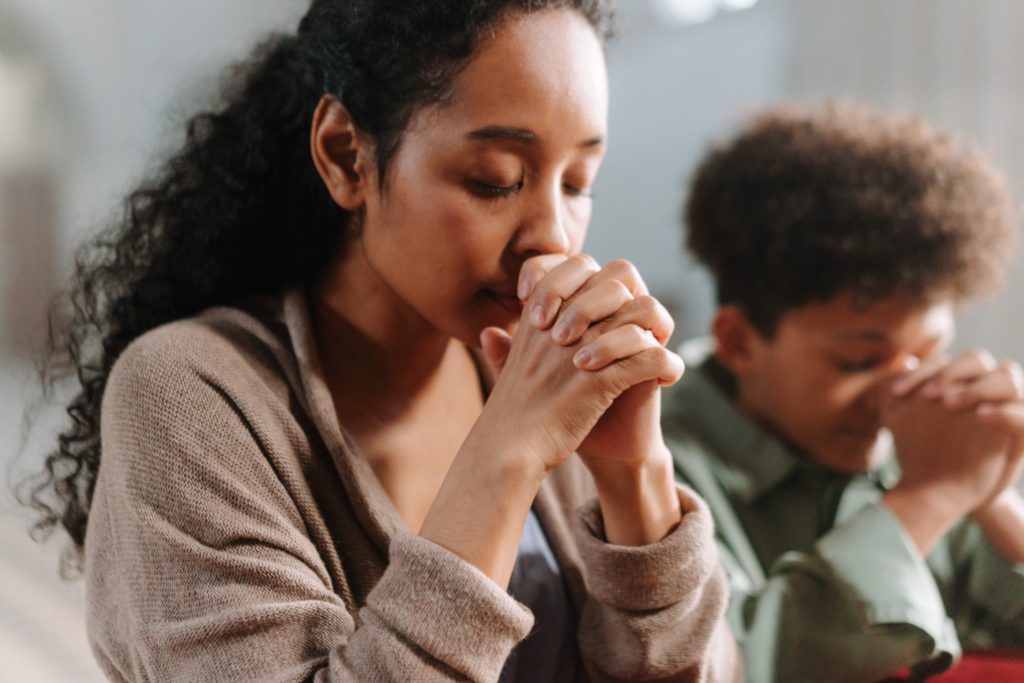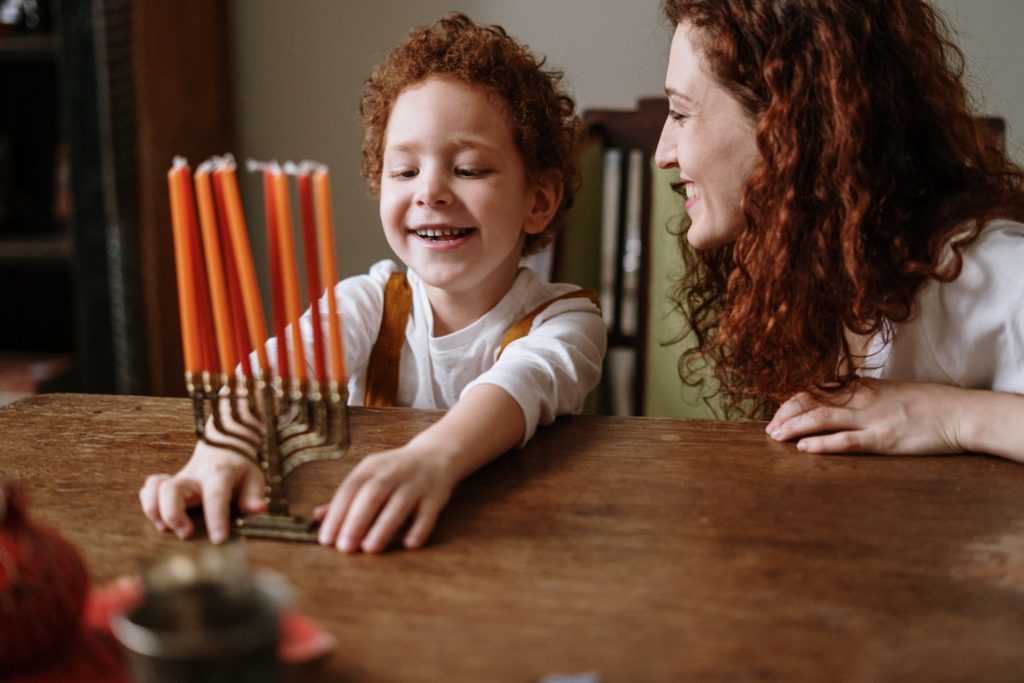At Texas CASA, we know that communities of faith are one of the strongest and most vital links in creating a healthier world for children and families. Christianity, Judaism, Islam, Buddhism, Hinduism and many other major religions share a common calling to serve the most vulnerable.
Texas’ foster care system is in crisis, and the children caught in the middle due to no fault of their own need support from their community. Knowing this, Texas CASA created our Clergy, CASA and Community initiative to build a network of faith communities and leaders who will stand up to meet the needs of these children and their families.
This initiative isn’t just about recruiting CASA volunteers! It’s about tapping into existing ministries, building genuine relationships with faith organizations and coming together to fill in the gaps for children and families in creative ways—big and small. Below, you’ll hear from folks from three different areas of the state who have mobilized their faith communities to get involved and make a difference.

Kit Bredimus and Louise Gonzalez: CASA Volunteers, CASA of West Texas – Midland
Kit: My wife and I both are very active in our faith and desire to serve. The church is an ideal partner for helping with child welfare organizations. In Midland, we are fortunate to have many active and engaged church communities to support our child placement and welfare agencies.
Within our own church, we found an opportunity to help an often overlooked group – foster and adoptive parents. We wanted to develop a ministry for these foster parents inspired by St. Joseph, the adoptive father of Jesus and patron saint of foster parents. St. Joseph Ministry started with the idea of providing a support group structure for foster parents to be able to come together in sharing the joys and struggles of being a foster parent while also providing material support. Our group currently provides support in prayer, letters of encouragement, monthly support groups, meals, tutoring, home support/home repairs, and various other needs that arise. It has also been an opportunity to educate those considering taking on the role of CASA volunteer or foster parent, providing them with contacts and educational sessions. Our Catholic faith drives the group, but we are offering support to any foster/kinship/adoptive parents who need support, regardless of faith or denomination.
We have an incredible leader for our group, CASA of West Texas Executive Director Patty Pisklak, who helps identify needs among our local child placement agencies and promotes our ministry’s services. She has also been a great fundraiser, helping secure enough donations to fully fund the first year of operations and provide all the services for our families. Most important to me is that we have the opportunity to work with other parishes (churches) in our area and grow our reach to more families while expanding services through a bigger volunteer pool.
As a CASA volunteer and former foster parent, I understand how important it is to provide support to the families and that they will not always ask for help or even know how or when to ask for help. CASA can help identify needs and coordinate with churches and other nonprofits to bring much needed support to these families.
Louise: My faith is everything. It’s been the center point of my life. I’ve moved frequently, and every time I move, the first thing I want to do is find the church where I will be comfortable. I’m retired, but I worked in social work, with kids in foster care and adoption, most of my career.
The church is in a unique position to help because it’s not a governmental agency. We can cut red tape. I have a family I’m working with—a relative placement—the child has been in foster care for five years now. We got approval to move him in with a relative who doesn’t have a lot of money, but they have a lifelong connection. They were having a hard time getting everything they need to pass inspection. As St. Joseph Ministry, we were able to order the things they needed and pay for them. They’ve gotten all of that stuff done, and the worker from the state finished up the home study to hopefully get this kid adopted.
St. Joseph’s was put together as a response to the need to support the children who need help. I’ve always been a proponent of relative placements whenever possible. If somebody can say to a parent, “I believe in you,”… We can step in as a faith community and be their mentor, and help them through things. CPS’s job is first to protect the children. Yes, our purpose is to protect the children, too, but in the broader sense. And children have connections, even babies have connections.
CASA has the opportunity to be so involved in these children’s lives, to really know them. The court recognizes it—we know these kids better than anybody in the system knows them. And it’s great to be able to go to the churches and say, “I have this need for this one person I’m working with, what do you have that can help?”

Andrea Zimmerman: Coordinator of the Families & Foster Care Coalition, Heart of Texas; & Wife of Reverend Aaron Zimmerman, St. Albans Episcopal – Waco
So a little over a year ago, in response to high numbers of kids in without placement in our area, Prosper Waco started the Families and Foster Care Coalition. It’s now an organization of over 80 stakeholders: child placing agencies, service organizations, churches and others. This past March, I was just kind of hopping in on the Zoom meetings to learn more about it, and they asked me to become more involved to help take the coalition to a different level. I came onboard, and we hosted a two-day event in June. The first day was for faith leaders, talking about how they could get involved in the Clergy, CASA and Community initiative. And then the second day was open to everyone—we had a speaker who’s a nationally known foster parent. St. Albans is a member of the Families and Foster Care Coalition, and my husband is the rector, so they provided the space, because they have a brand new building that is ideal for community events. The energy that came out of that event spring boarded the future of the coalition. After that, we applied for some funding and to create a position so we could do more.
I think communities have neglected the foster care space. If you just look at our situation right now, we have 400+ kids in care in McLennan County. Well, we’ve sent away 200+ of them to other areas. And nobody knows that! I was like, why don’t we know about this? Unless we have people communicating it to the greater community, we’re not going to know about it. And all the people working in foster care are at capacity. They don’t have room to go speak at luncheons, or meet with community members just for the sake of communicating that need. The idea with the coalition is that we go into organizations with these 80 entities and say, “Hey, here are our numbers. Did you know we send away half our kids to other areas because we don’t have enough resources or foster homes here?” It provides a unified front communicating the urgency.
To work with faith organizations, where often there’s so much overwhelm of when, whom and how to serve, we have to structure engagement in bite-sized pieces. We’re not talking really at all about becoming foster parents, we’re talking about, “Can you host a shoe drive? Can you host a drive for school supplies in August or July? Is there somebody in your church that can make a meal train? Can your small group put together welcome boxes for foster village?” Breaking it down to very accessible entry points. And then, if they want to do something higher level, “Well, we need certified babysitters, how about that?” Or maybe a church wants to work on preventing foster care entry. So that’s when we would refer them to the care portal or another organization.
I think God honors when we step into these spaces. The people we are serving here are the most vulnerable in our communities, because they are children.
A lot of the nonprofits in our area, for whatever reason, have historically been pretty siloed. With the coalition, I think that when we have these kinds of partnerships, and shared resources, it makes us stronger. It avoids duplication. You know, it creates a network of support. That’s been pretty rewarding to see.

Pam LeTourneau: CASA Volunteer, Dallas CASA
To me, faith and service have always been linked. I think that in my Christian faith, Jesus was very direct and specific about our instructions to serve the least of these, and many of his parables and stories centered around the way that we love others. My husband and I have had the opportunity to travel around the world and see the profound need. It’s easy, I think, for me to focus on the needs in developing nations, but when I come home, I see that there are vulnerable people right here in our backyard. And so I feel that when Jesus says to love our neighbor, that neighbor can be someone on the other side of the world, but it can also mean someone right here in my community.
I was involved with the Dallas CASA Faith Outreach Team, as part of the Clergy, CASA and Community initiative, in its early stages. We were trying to come up with, “Who is out there to engage with?” Not just churches, but other organizations, too. I really liked the diversity within the outreach team. We had a representative from the Jewish faith, Muslim faith, a variety of Christian denominations… While we might not share the same faith, I celebrate that what we have in common is a desire to care for the vulnerable. We don’t have to agree on everything in order to work together.
I feel like a lot of churches want to engage their community, but they don’t always know where to get started. There’s an eagerness and a willingness, but maybe a lack of direction. One of the children I serve was without placement—what the system calls “Children Without Placement,” or “CWOP.” Without sharing any confidential information about the case, I shared with my pastor that I was struggling, and told him about CWOP. I didn’t even know that was a thing before it happened to my CASA child. He invited me to share about that crisis, and the need for this particular child, with our congregation of 250 people. By the end of that day, they had given $1,800 in offerings to support the child. We got her some basics, replaced some old clothes, got her hair done—which for African American children is especially important.
We [faith-based organizations] can just be so unaware until we intersect with someone who can show us and teach us that these needs are out there. There are kids where there are no foster placements for them… staying in hotels, on floors in office buildings. People of faith already have the heart to want to respond, and respond generously. Somebody needs to tell them!
Everyone has different resources, different levels of availability in terms of their time and their resources. People can offer their expertise in whatever area they have it. I think the possibilities of how you can be involved, and take what you have and use that to help children in the foster care system, are really limitless.